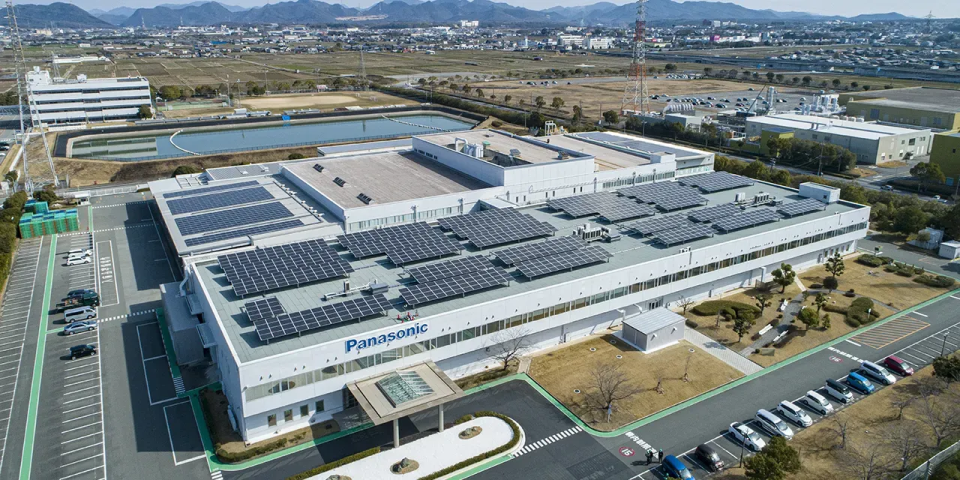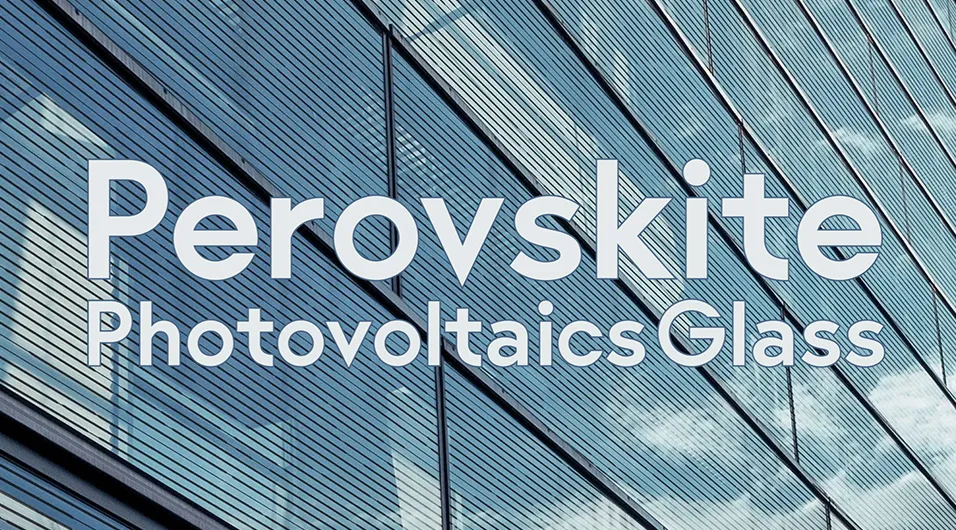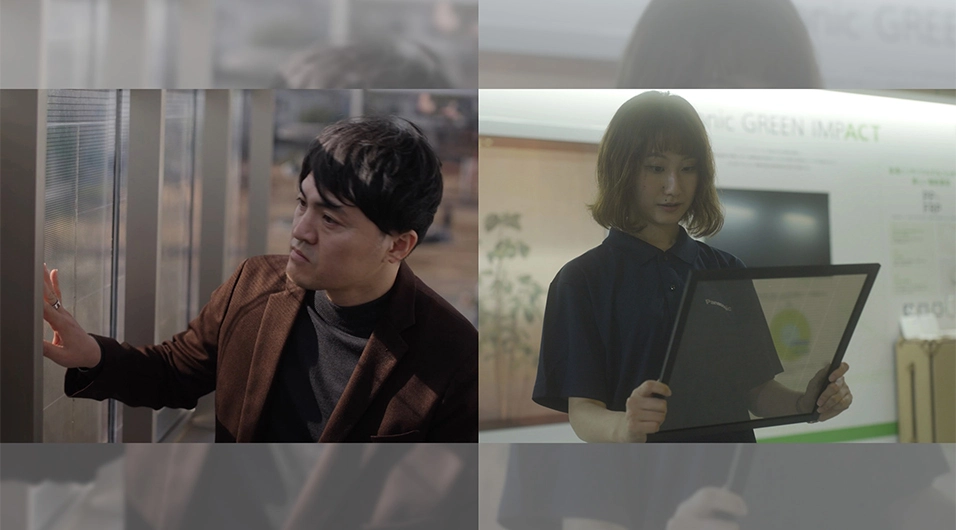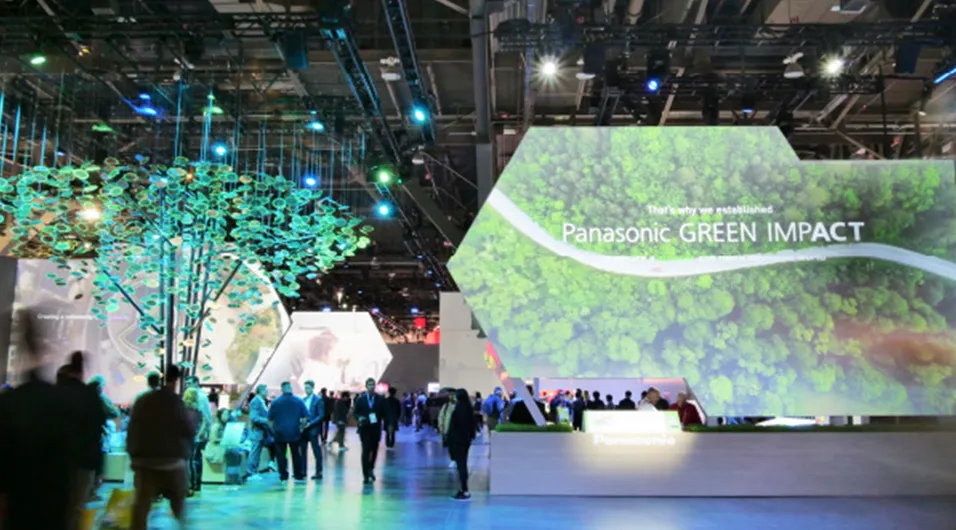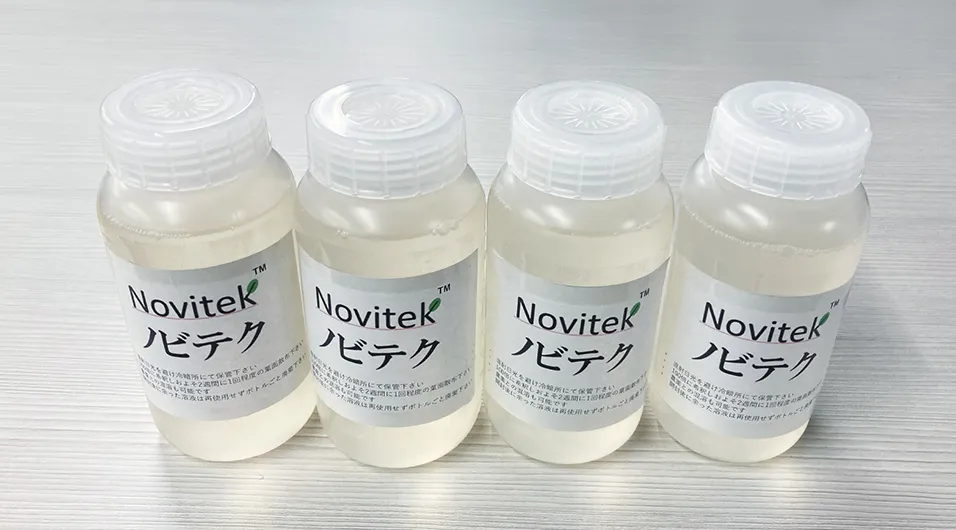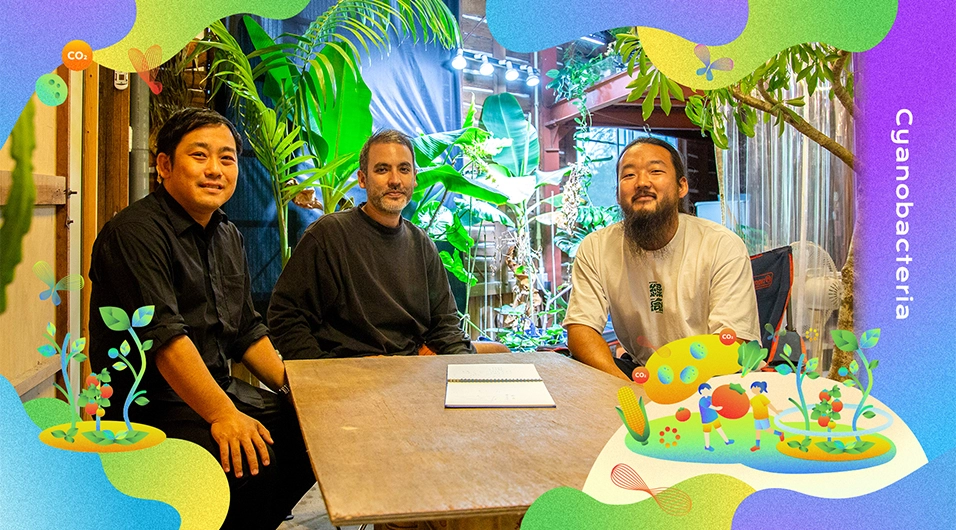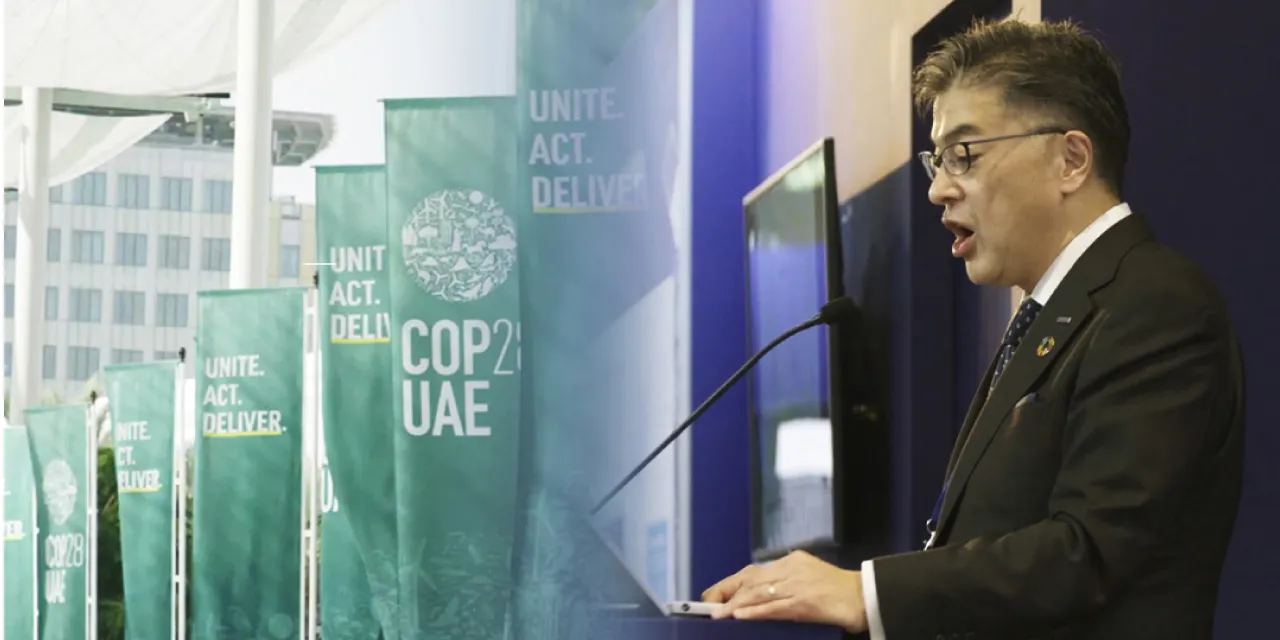FUTURE IMPACT
With the aim of transforming society's use of energy, Panasonic will contribute to the reduction of CO2 emissions in society as a whole through our new technologies and businesses.
Perovskite Solar Cells
Panasonic's Energy-Generating Glass Will Contribute to the Wider Adoption of Renewable Energy
The push for carbon neutrality has brought about a growing need for solar cells that can be used in cities and other areas with limited flat surfaces for installation, as an innovative means to generate more renewable energy. Recognizing this need, the Panasonic Group has developed glass-integrated Perovskite solar cells that can be seamlessly incorporated into building materials, serving as energy-generating glass for walls or windows. This breakthrough enables solar cells to be utilized more flexibly in architectural designs.
Our aim is to promote the widespread adoption of Perovskite solar cells that harmonize with urban environments and lifestyles, contributing to both the reduction of CO2 emissions and the expansion of renewable energy in society.
Panasonic's Proprietary Technology Delivers World-Class Energy Conversion Efficiency
In November 2023, Panasonic's Perovskite solar cells achieved a world-class energy conversion efficiency level of 18.1% in an 804 cm² module. By combining our original inkjet coating method and laser processing technology, we can enhance flexibility in terms of size, transparency, and design, allowing for customization according to specific requirements.
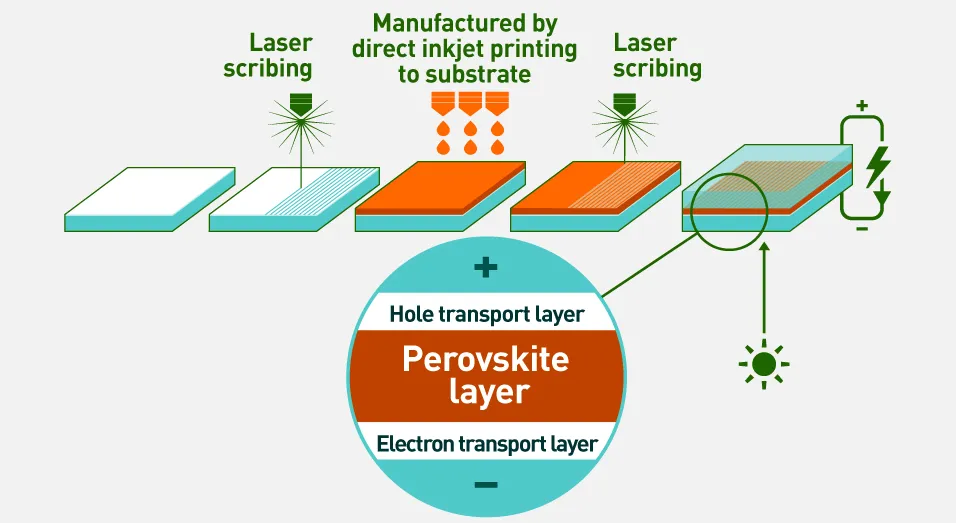
Panasonic's unique inkjet coating method
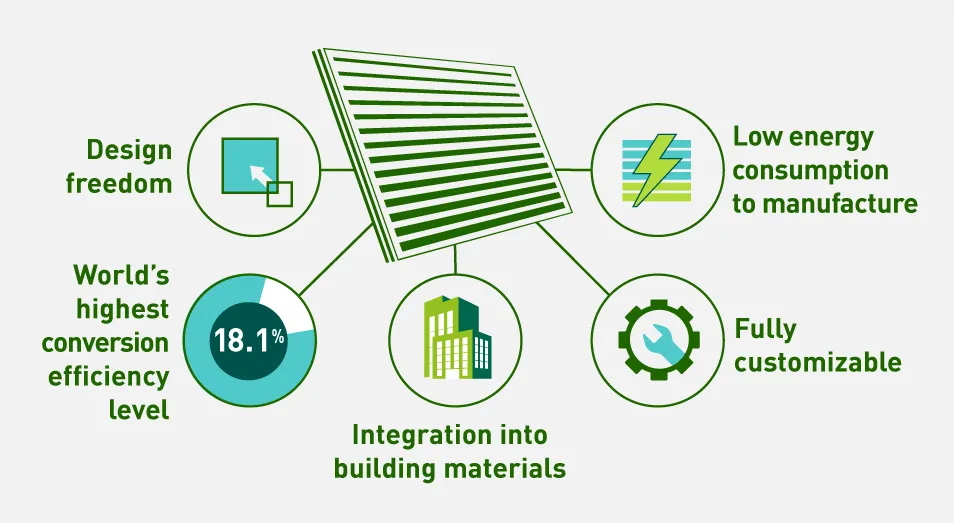
Features of Panasonic's Perovskite solar cells
Bio CO2 Transformation Technology
Utilizing CO2 to Increase Crop Yield and Contribute to Food Production
In line with our commitment to realizing a sustainable global environment, the Panasonic Group has developed a groundbreaking technology known as Bio CO2 Transformation. This technology utilizes atmospheric CO2 to enhance crop yields, making a significant contribution to sustainable food production. In this proprietary technology, photosynthetic microorganisms, believed to be the origin of chloroplasts, use CO2 as a raw material to synthesize plant growth components through photosynthesis with light and water. By spraying the synthesized plant growth components onto the leaves of crops, we have successfully stimulated plant growth and increased crop yields.
Notably, this technology not only leverages atmospheric CO2 but also recycles CO2 during the crop growth process. This dual capability makes it a valuable asset in achieving carbon neutrality and supporting sustainable food production. The Panasonic Group is committed to advancing Bio CO2 Transformation technology, working towards commercial production and global deployment to further contribute to a sustainable future.
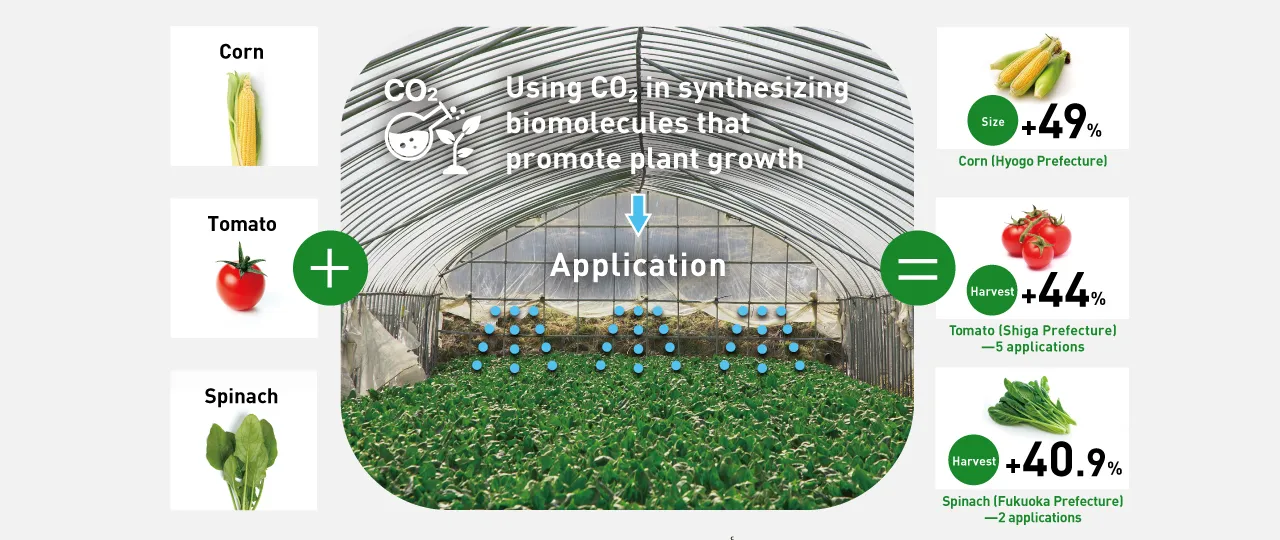
Due to the increase in CO2, Earth is the hottest it has been in 1,400 years, and climate change is accelerating.
CEO Kusumi shares the Panasonic Group's resolve regarding Panasonic GREEN IMPACT.
The Panasonic Group aims to create impact that reduces CO2 emissions by at least 300 million tons by 2050.
Carbon Neutrality
Circular Economy
